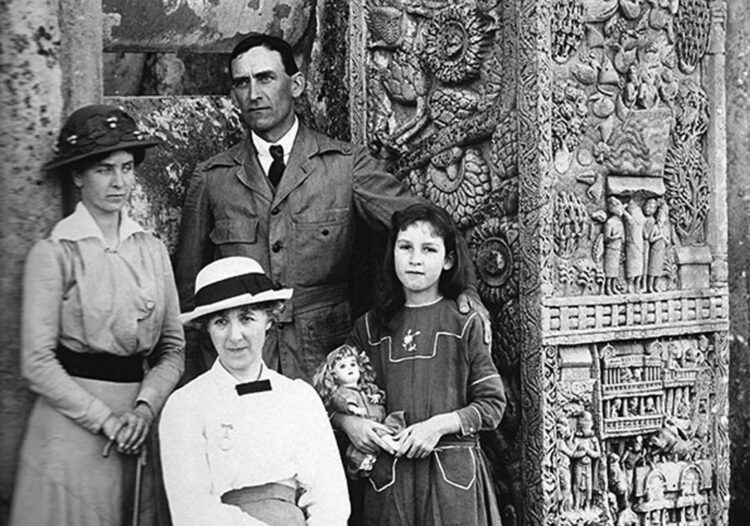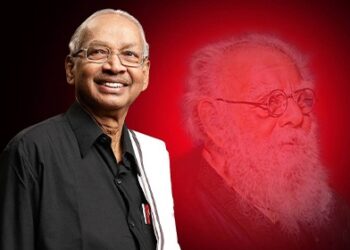Sir John Marshall with his family
The role of Sir. John Marshal in the excavations of Indian Archaeology was indeed marvellous. Collaborating with the experts in the field, it was he who had made the entire world know about the Indus Valley civilisation. He compared it with the Sumerian civilisation and proclaimed that it was also similarly an ancient civilisation discovered in India. The entire world was stunned by his revelation. He had emphasised that Indus Valley civilisation existed in India long before the Vedic Age civilisation. He had made us all proud by his historic declaration. Readers should know more about this exceptionally great scholar.
Sir. John Marshal was a native of England. He was born on 19th March, 1876. He passed away on 17th August, 1958 after a glorious life, at the age of 82. He had been serving in India during the British rule, as the Director of Indian Archaeological Department from 1902 to 1928. Most of the artefacts discovered and exhibited by him during that era are still being protected in India as historical symbols of timeless value. Relevant laws pertaining to these national treasures were also formally enacted during his life time.
John Marshal undertook field work all over India. In Saranath, Rajgriha, Sanchi, Siravasti, Kusi, Nalanda, Patliputra, Taxila and many other places excavations were done under his leadership. The most significant were the ones undertaken in Mohenjodaro and Harappa. He attained worldwide popularity through those remarkable excavations. During his lifetime, excavations were carried out even in places such as Adichanallur and Nagarjunakonda. His discoveries proved to the world that the Indus Valley civilisation was the most glorious in the entire world.
We learn from the findings of his excavations that the houses, streets, granaries and wells in Mohenjodaro and Harappa were all built by excellent planning. All the habitats should have helped people lead a comfortable life. The drainage and sewerage systems were all amazingly executed in those bygone days. Several terracotta idols, utensils and hundreds of articles were excavated by the team of John Marshal. Signs of reservoirs were also found out besides copper and brass articles with images and colourful inscriptions on them. Several articles with beautiful engraving were also dug out during the excavations. We could learn much about those antique cities and the civilisation that existed there.
Archaeologists used to argue and debate over the vital question – was the Indus Valley civilisation, Aryan civilisation or Dravidian civilisation? There was also a doubt whether it was different from both, pertaining to some other sect. Sir, John Marshal asserted that the aspects of Dravidian culture alone could be found in Indus Valley civilisation. Researches are going on even today over his views and observations. He stresses that Indus Valley civilisation existed even before the encroachment of the Aryans. His findings have been compiled and published in three volumes. They serve as the touchstone even today for Indian Archaeologists. Many other books authored by Marshal are available today. They are all a treasure in print.
The Government of Tamil Nadu has come forward to erect a statue of John Marshal in honour of his great discoveries. The world has come to know by them that the Indus Valley civilisation is a symbol of Dravidian antiquity. He deserves our gratitude and felicitation.








